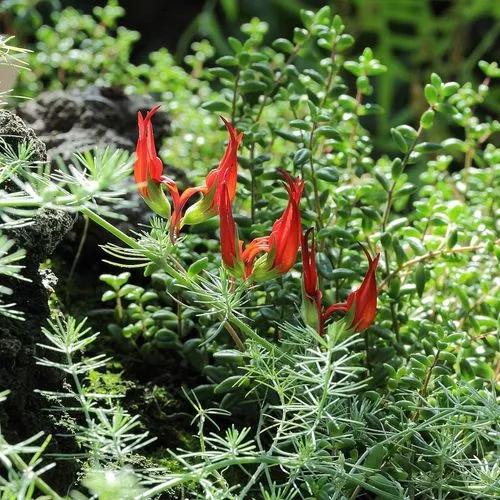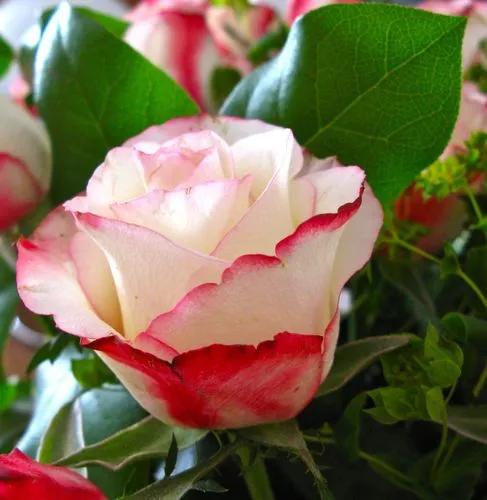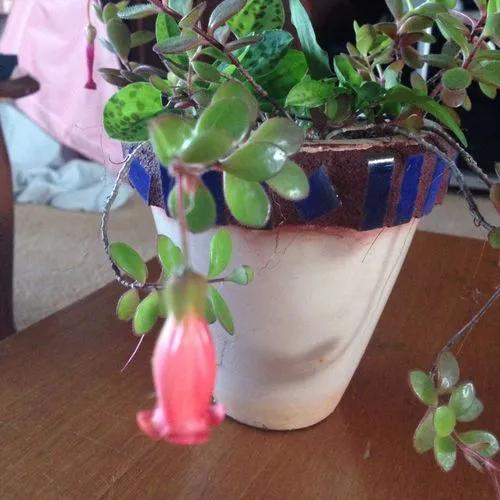As far as ornamental value is concerned, the Mandevilla plant will not disappoint. The beauty of Brazilian Jasmine is the reason why many gardeners love them. Your trellis, arbor, pergola, and hanging baskets will appear highly attractive with this plant.
Brazilian Jasmine Care
Mandevilla sanderi



This Mandevilla people is also known as Brazilian Jasmine because it originated from South Brazil. It's an evergreen woody vine that grows up to 49 ft (32 m). It has dark green, glossy leaves in oval shape, arranged oppositely in each stem. The vine has a fast growth rate and requires plenty of space to climb on.
The most attractive feature of the plant is its funnel-shaped flowers arranged in clusters. Red-pink flower inflorescence bears on the stems almost all year round, creating an irresistible invitation to pollinating insects like bees, butterflies, and hummingbirds.
How to Care for the Plant

Water

You need to provide this Mandevilla species with a moderate amount of water only. Don't overwater because soggy soil can deprive the roots of oxygen, resulting in root rot. It's best to keep the soil moist by watering it deeply every time the top 2 inches are dry. For container-grown plants, ensure that there's good drainage in the pot.

Pruning

As these vines grow on new growth, pruning the older vines is important to encourage more flowering. During winter or early spring, cut back some branches to not more than ⅓ of the plant's mass. You must also remove any damaged or diseased parts of the plant.

Fertilizer

Start by adding compost, well-rotted manure, or vermicast to the soil before planting. These organic fertilizers will slowly release essential nutrients to the plant as it grows. From spring to fall, you can supplement nutrients by adding liquid fertilizer diluted to half strength every two weeks.

Sunlight

Growing the Mandevilla plant is most successful when full sun is available. Hence, an outdoor location that receives at least 6 hours of sunlight daily is preferred. If indoors, it should have access to bright indirect light. The more sun there is, the more flowers there will be.

Soil

Any regular potting soil will suit Brazilian Jasmine as long as it's well-drained and has plenty of organic matter. To improve drainage, you may have to amend the soil with peat moss, leaf mold, and sand.

Propagation

Propagating these plants is quite easy when you already have cuttings. All you need is to cut Mandevilla vines below a node. Each cutting should be 4 to 6 inches (10 to 15 cm long). Cuttings should be taken from healthy and vigorous mother plants.
Remove the bottom leaves and retain only 2 to 3 young leaves above. Dip the bottom part in a rooting hormone and insert it into a moist potting mix. Make sure that the stem is firmly planted. Cover the plants with clear plastic to maintain high humidity. Then, place the propagating tray in a warm area that receives filtered light. Mist the soil occasionally to keep it moist. It will take a month for the cuttings to develop roots.

Temperature

Being native to the tropical areas of South Brazil, these flowers are accustomed to a warm environment with high humidity. The ideal growing temperature is between 70 to 90°F (21 to 32°C). Any temperature lower than 50°F (10°C) can damage the Mandevilla plant. Growing indoors or inside a greenhouse will be better if you live in colder areas.

Container

This vine will grow in containers, given there's enough room for the roots to grow. The aboveground growth will depend on how extensive the growth can be. Whether you're using a pot or hanging basket, the container's minimum size should be 12 to 14 inches (30.5 to 38 cm) wide and deep.

Fun fact

It was Henry Mandeville who discovered the genus Mandevilla in the rainforest of Brazil back in 1840. Hence, the genus name. The plant's specific epithet, sanderi, was taken after Frederick Conrad Sander, a nursery owner and importer of plants in St. Albans and Bruges.

Popularity

25,118 people already have this plant 2,076 people have added this plant to their wishlists
Discover more plants with the list below
Popular articles






